Fine Motor Skills Normal Tracing Letters Worksheets for Ages 3-8
20 filtered results
-
From - To
Enhance your child's fine motor skills with our Normal Tracing Letters Worksheets, designed specifically for ages 3-8. These engaging worksheets help young learners develop essential handwriting abilities by guiding them through tracing letters of the alphabet. Perfect for practicing hand-eye coordination, grip strength, and precision, our expertly crafted exercises offer a fun approach to mastering letter formation. Ideal for preschool, kindergarten, and early elementary students, these printables provide a solid foundation for writing proficiency. Visit Kids Academy to download, print, and empower your child's journey to confident and legible handwriting with our comprehensive collection.
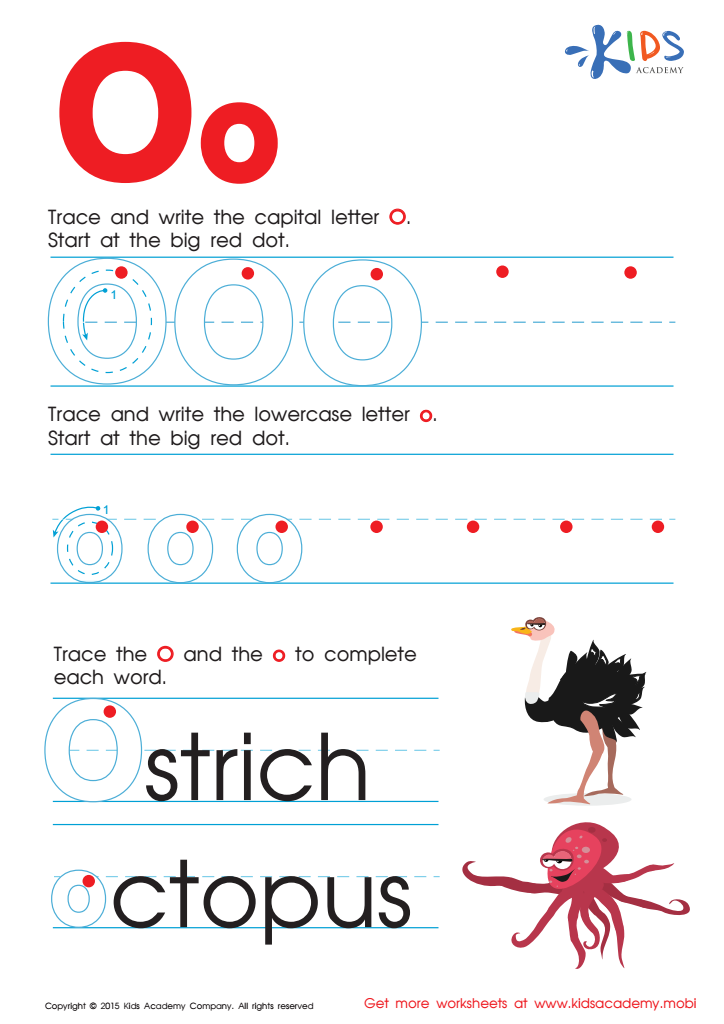

Letter O Tracing Page


Letter P Tracing Page
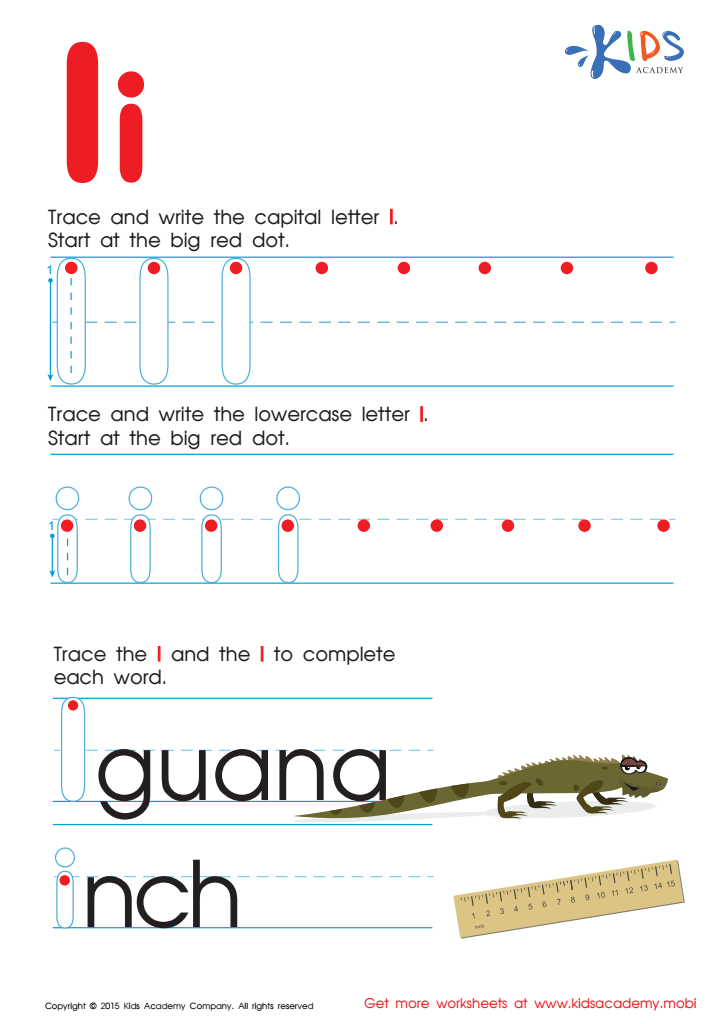

Letter I Tracing Page
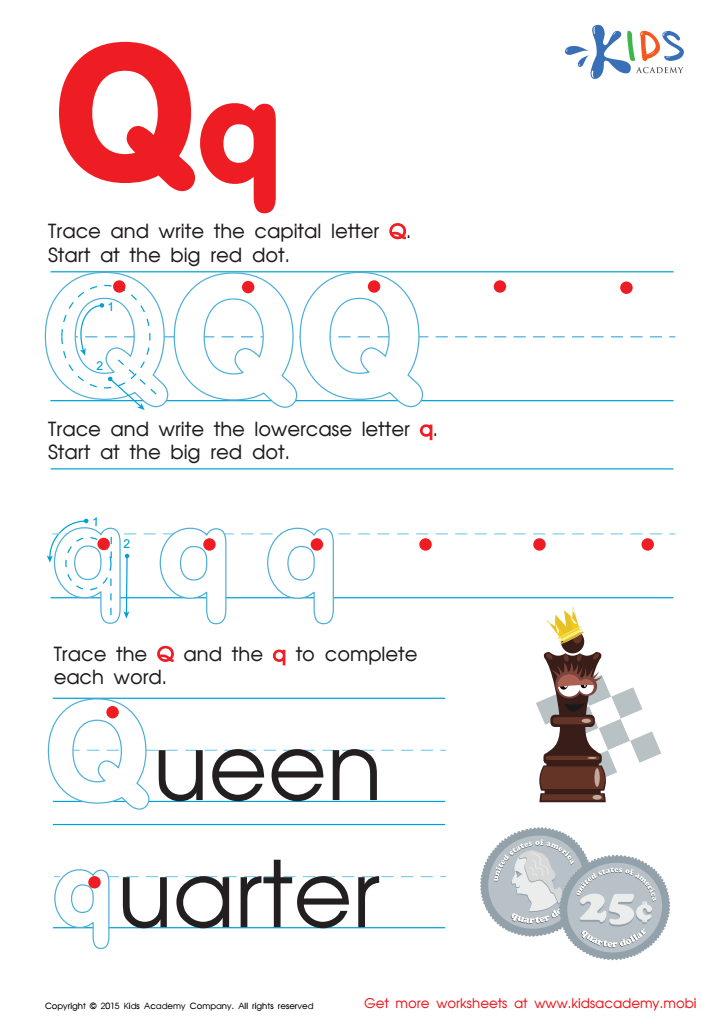

Letter Q Tracing Page
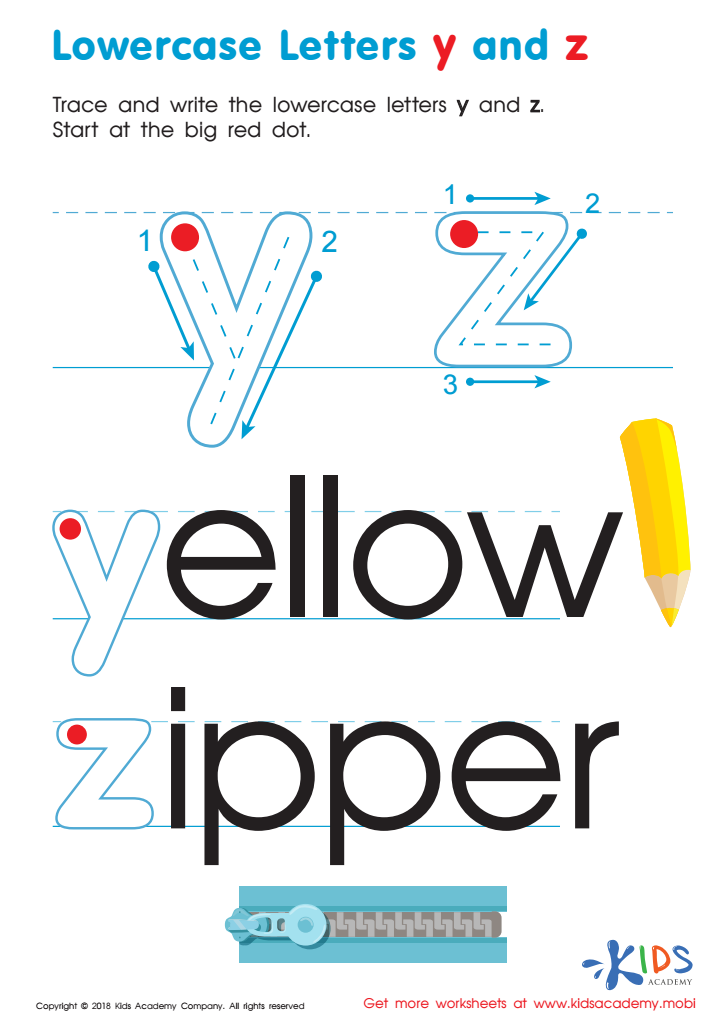

Lowercase Letters y z Worksheet
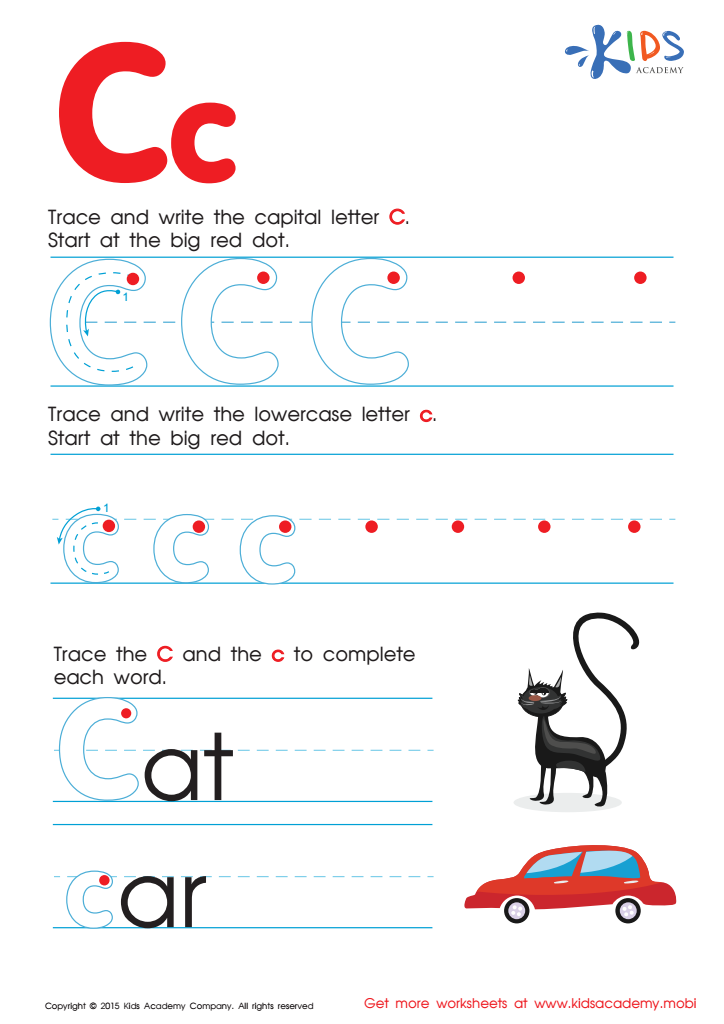

Letter C Tracing Page
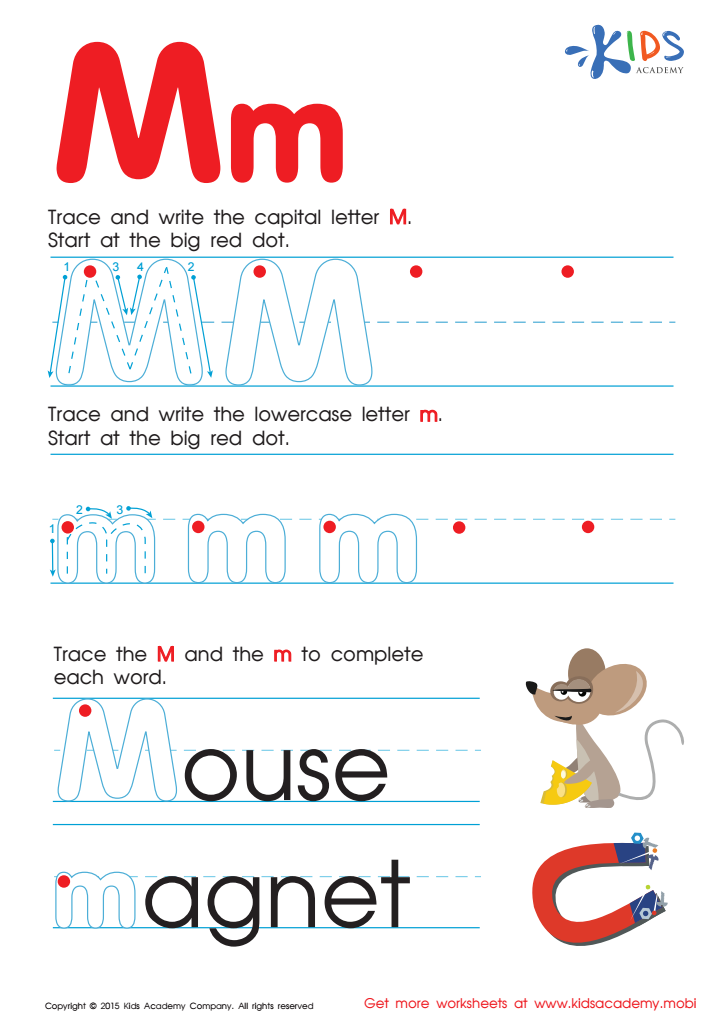

Letter M Tracing Page
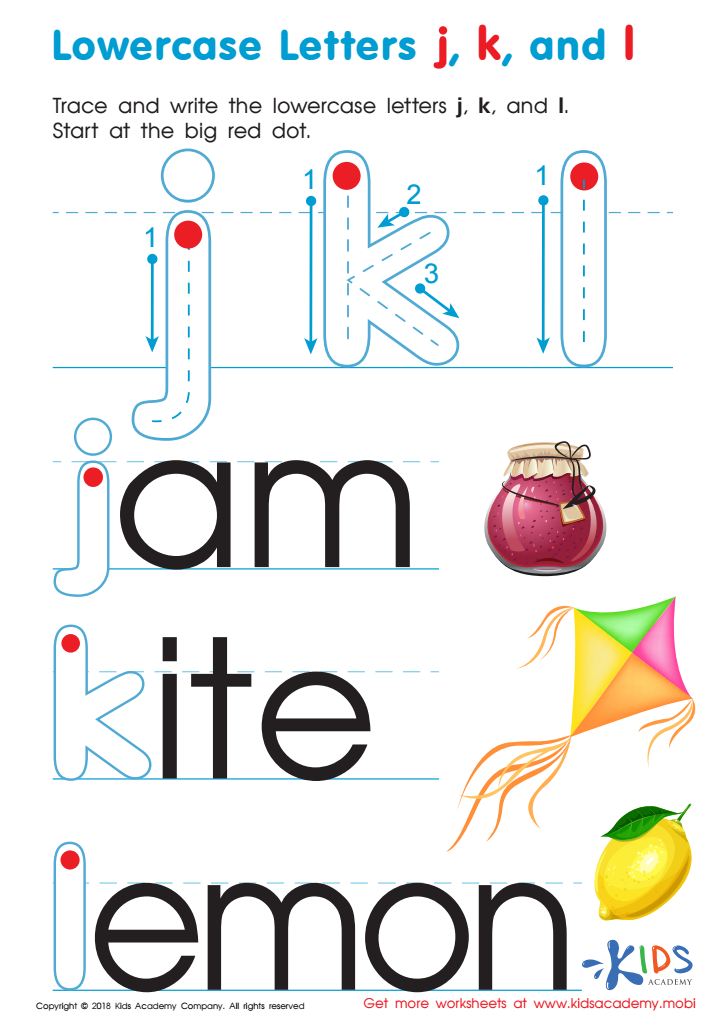

Lowercase Letters j k l Worksheet
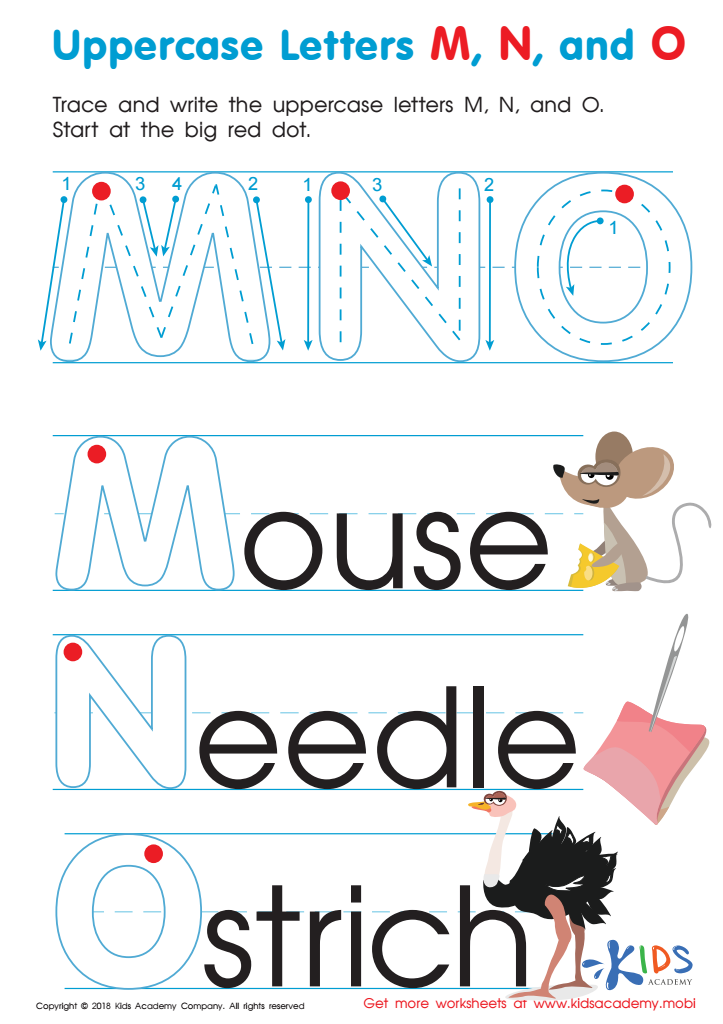

Uppercase Letters M, N, and O Worksheet
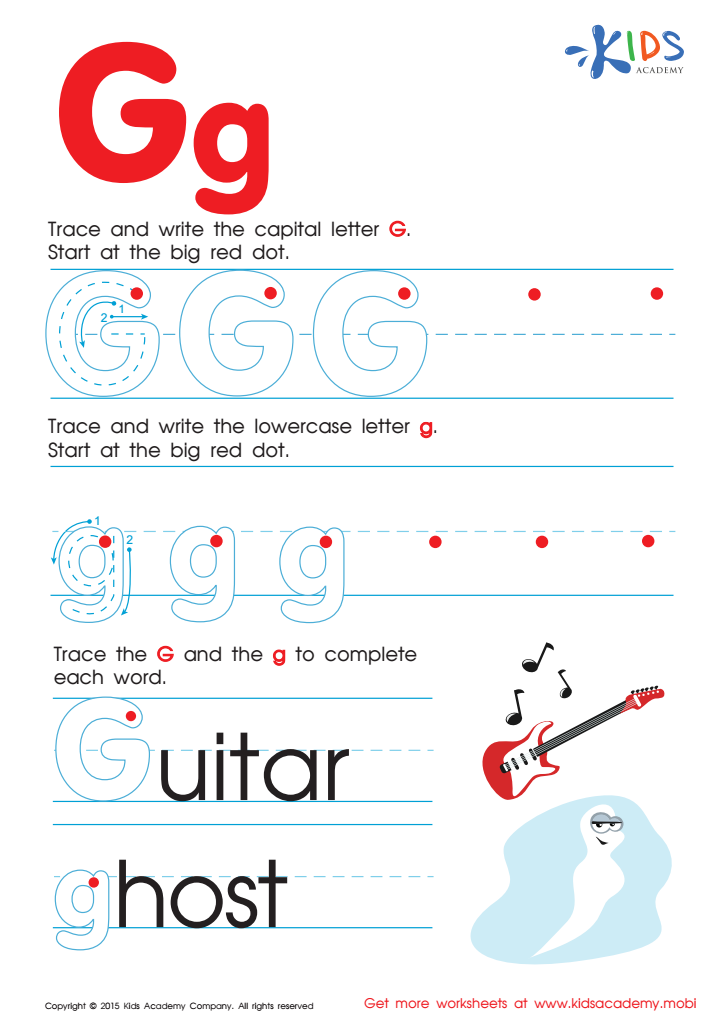

Letter G Tracing Page
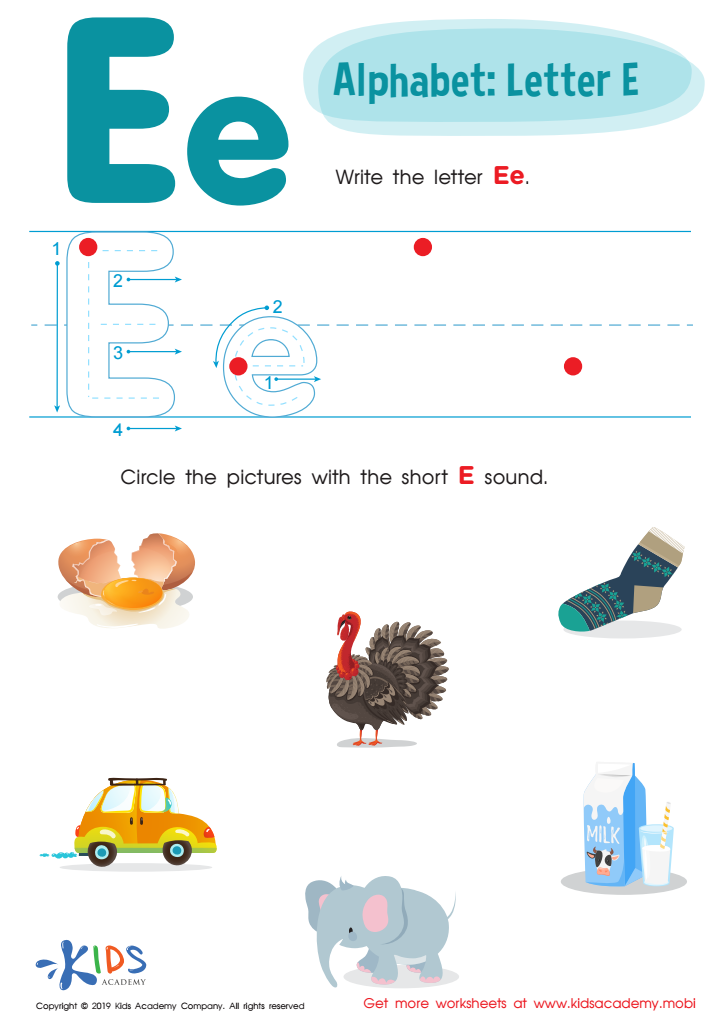

Letter E Tracing Worksheet
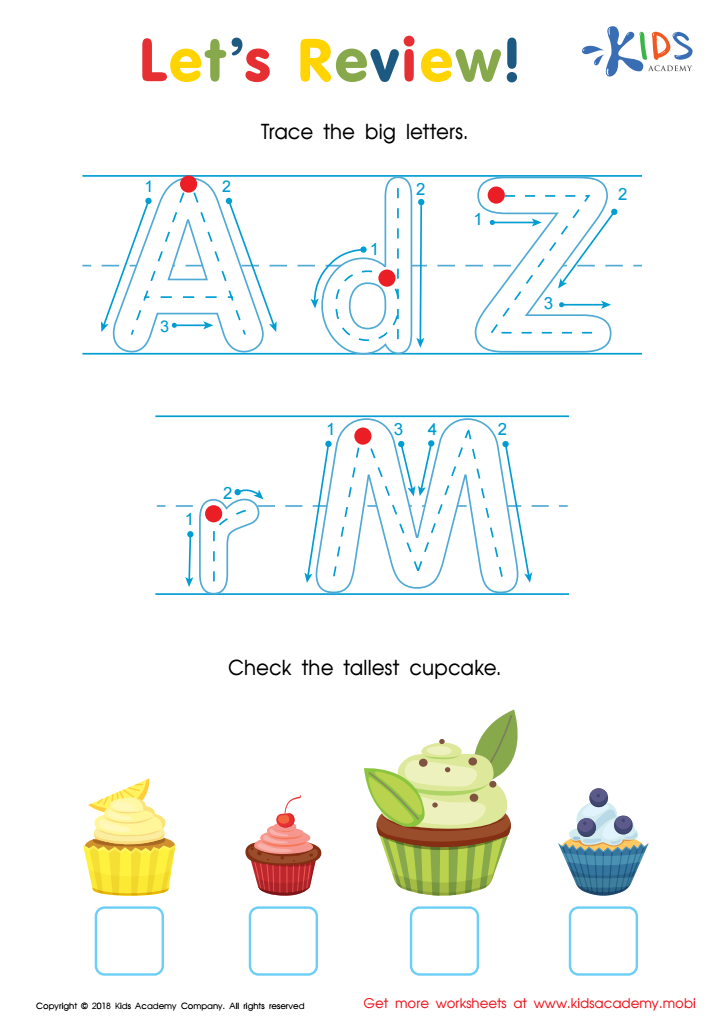

Let's Review! Big Letters Worksheet
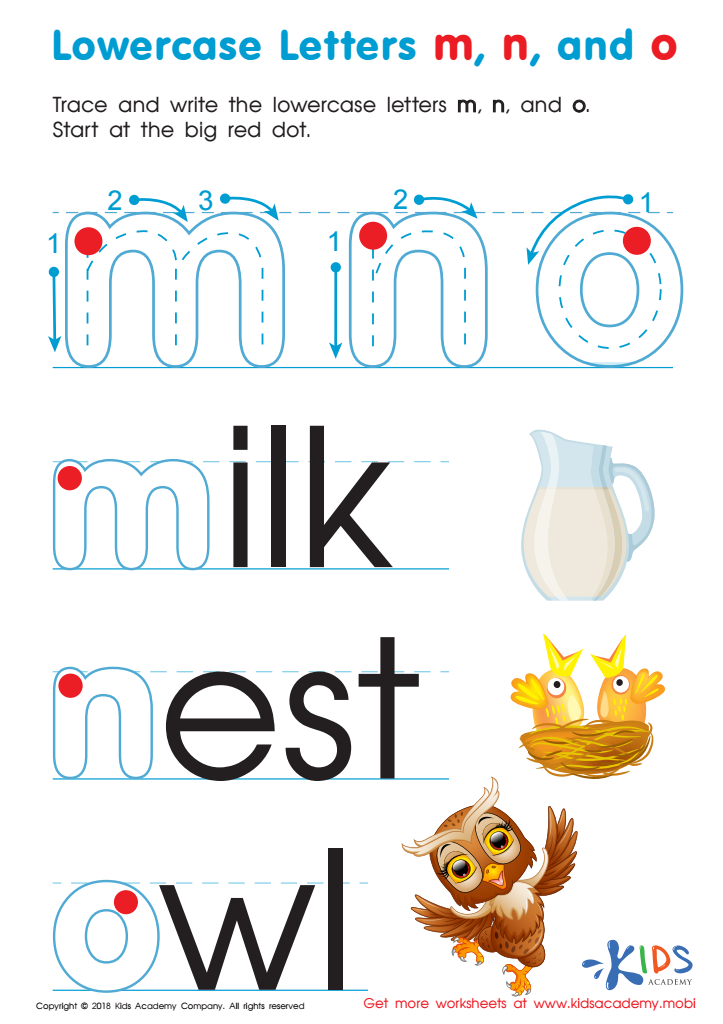

Lowercase Letters m n o Worksheet
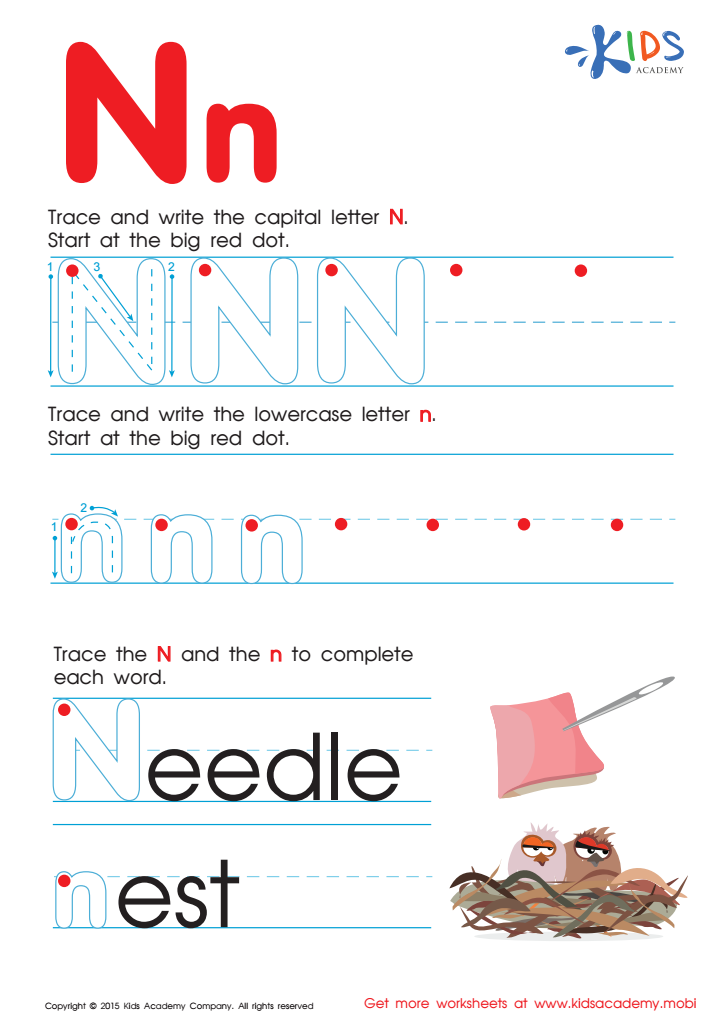

Letter N Tracing Page
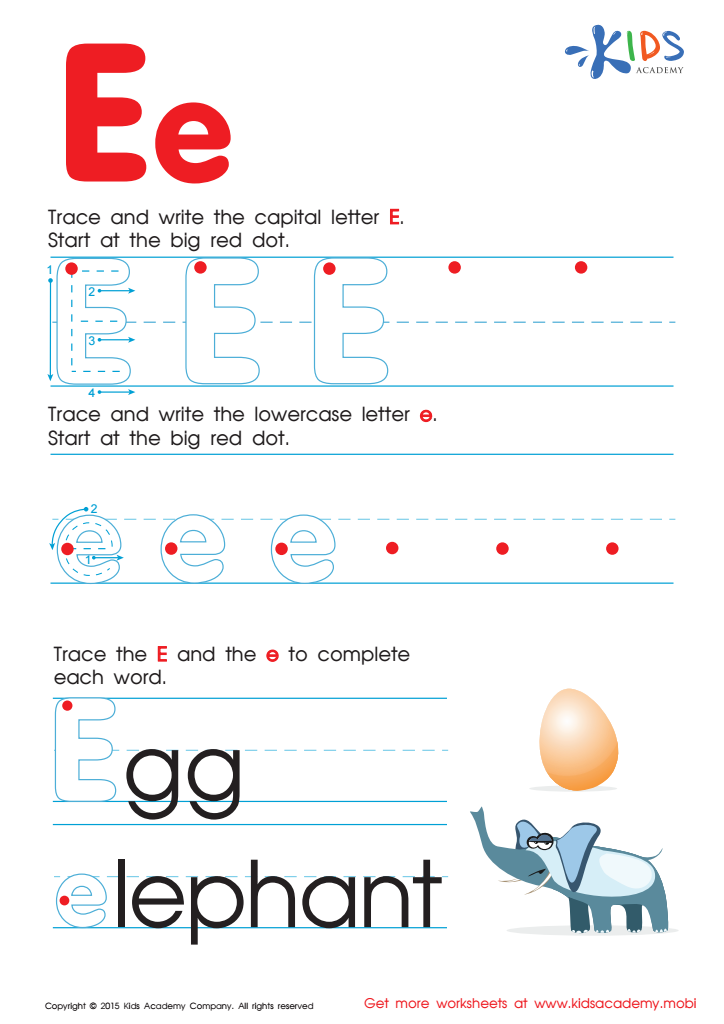

Letter E Tracing Page
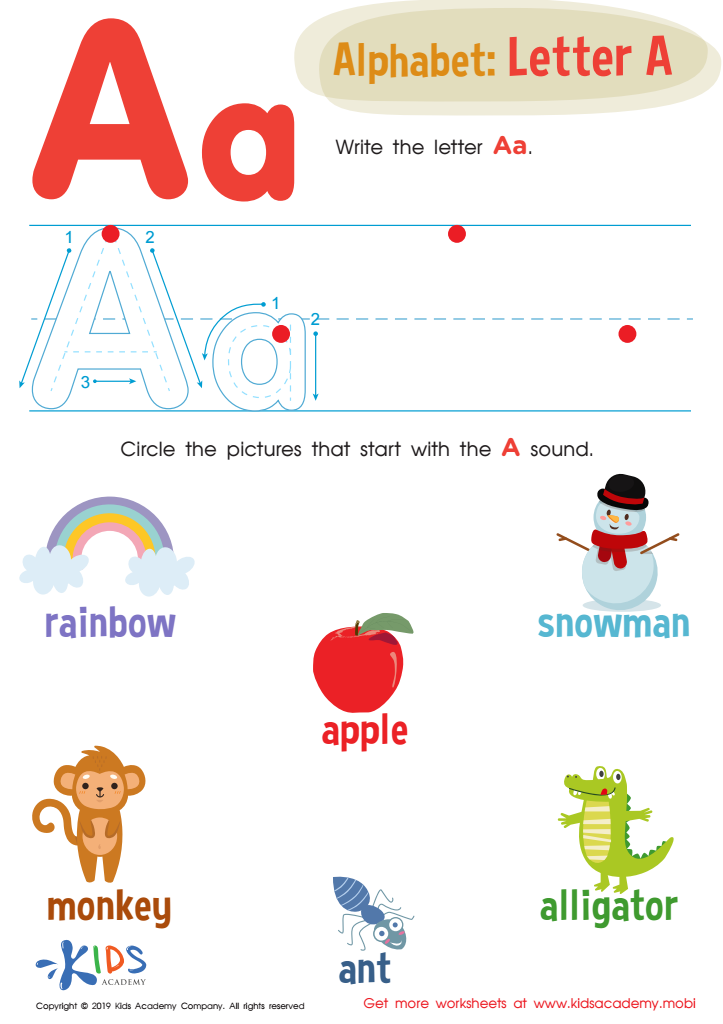

Letter A Tracing Worksheet
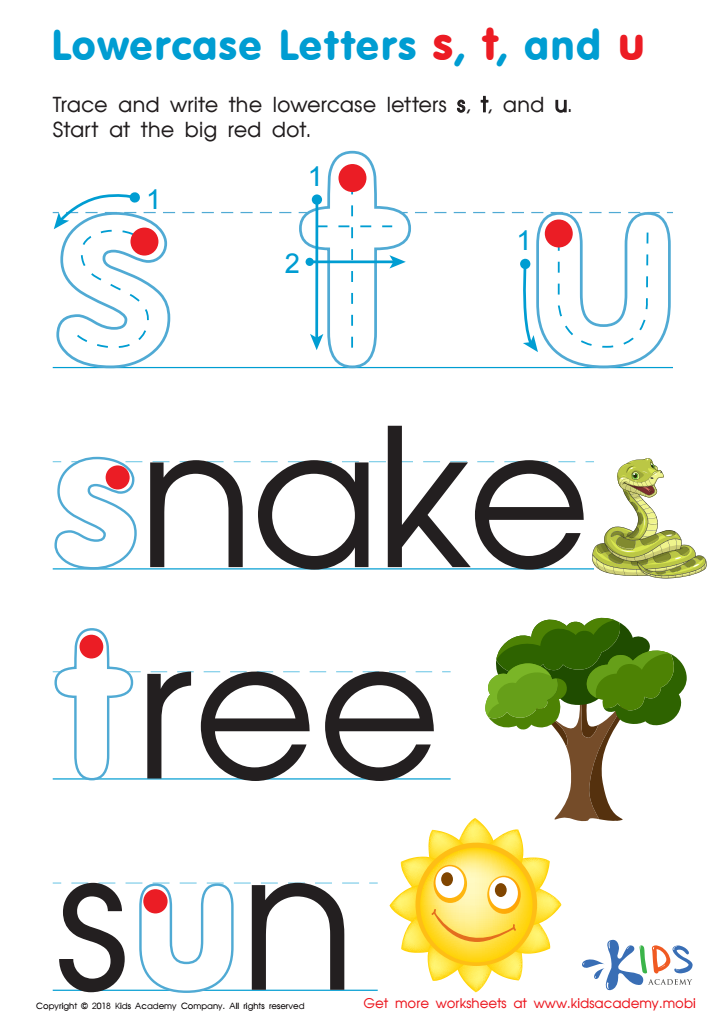

Lowercase Letters s t u Worksheet
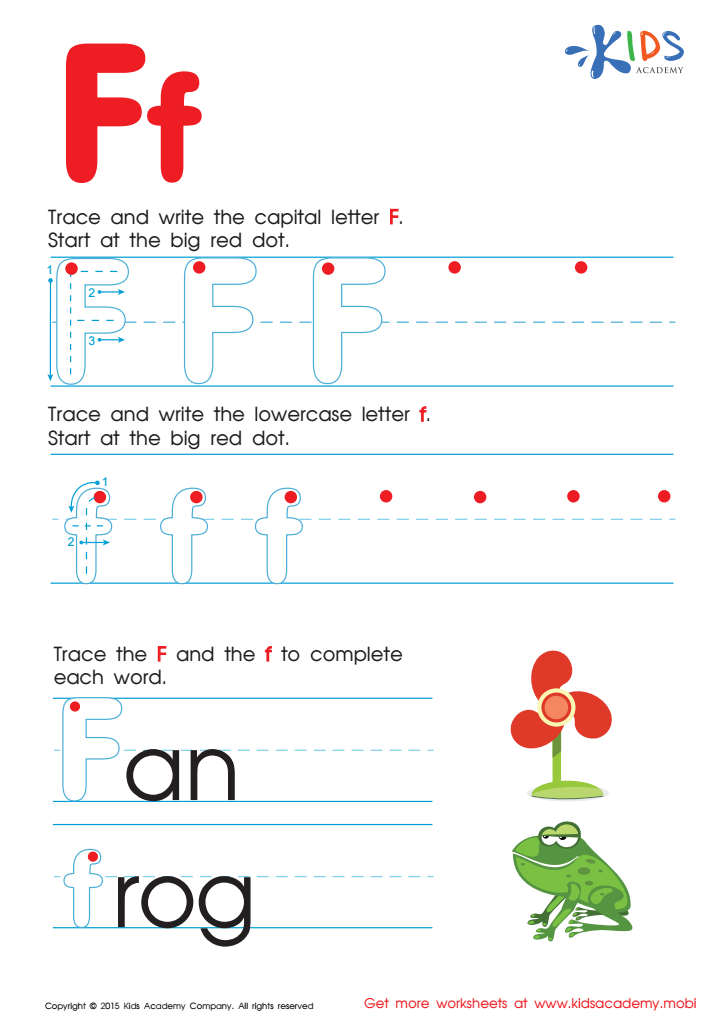

Letter F Tracing Page
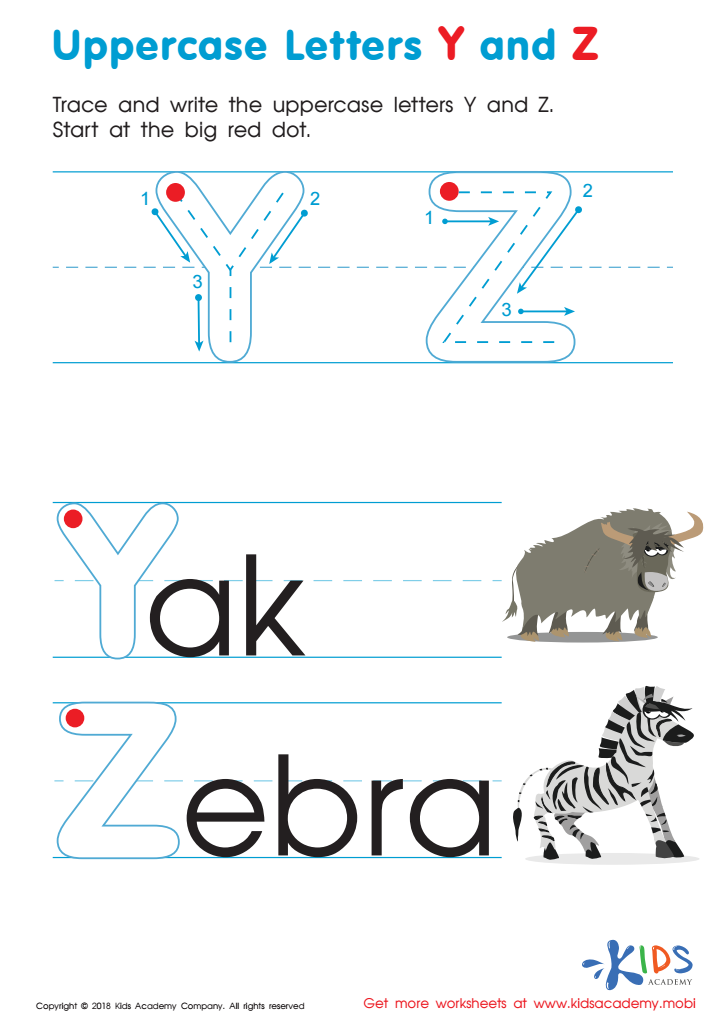

Uppercase Letters Y Z Worksheet
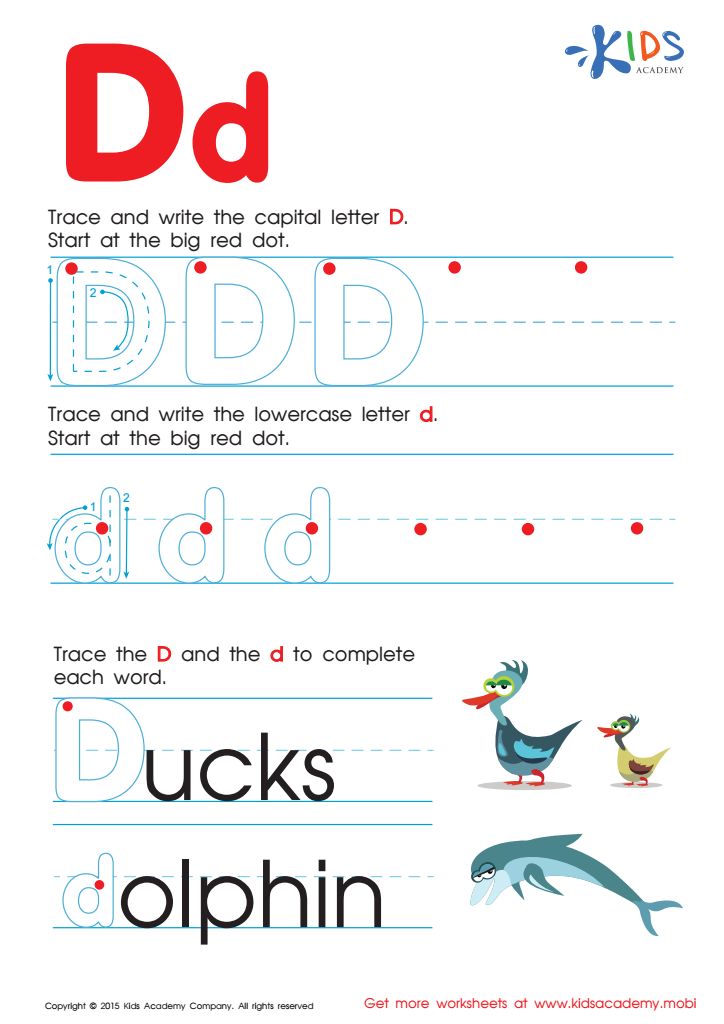

Letter D Tracing Page
Fine motor skills are the small muscle movements in the hands, fingers, and wrists that are essential for performing everyday tasks like writing, buttoning clothes, and cutting with scissors. For children aged 3-8, developing fine motor skills through activities such as normal tracing letters is crucial for several reasons.
Firstly, tracing letters helps children improve their hand-eye coordination, which is fundamental for writing legibly and efficiently. By practicing the controlled movements necessary to trace letters, children also enhance their dexterity and control over their hand muscles, making subsequent tasks like drawing or writing easier.
Secondly, fine motor skill development impacts academic success. When children are able to write neatly and quickly, they are more able to keep up with classwork and express their ideas clearly on paper. This builds their confidence and encourages a positive attitude towards learning.
Additionally, practicing tracing letters supports cognitive development. It involves understanding shapes and symbols, learning the alphabet, and beginning to form words – all foundational skills for reading and writing. It also reinforces memory through repetition and recognition.
Parents and teachers should care about these skills because they lay the groundwork for academic achievement and functional independence. Encouraging activities that bolster fine motor skills enables children to develop essential abilities that they will use throughout their lives, fostering a sense of accomplishment and enthusiasm for learning.
 Assign to My Students
Assign to My Students
















